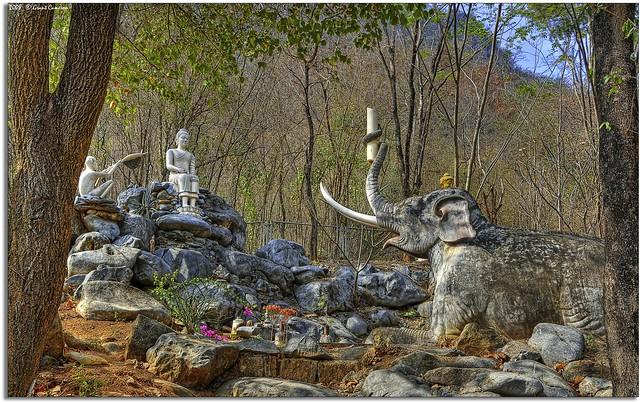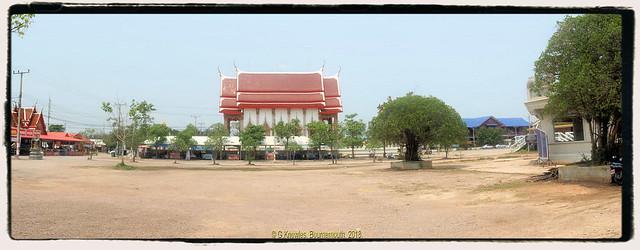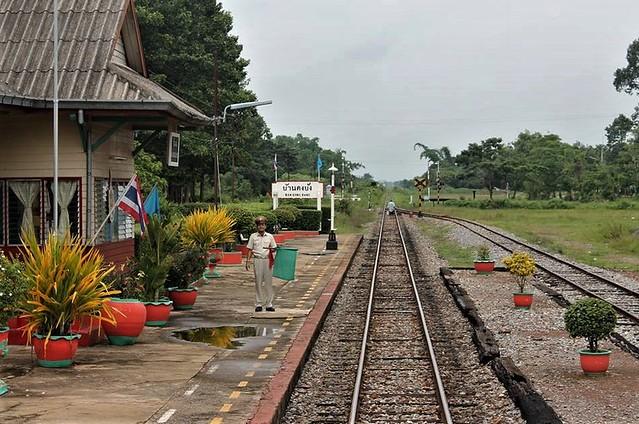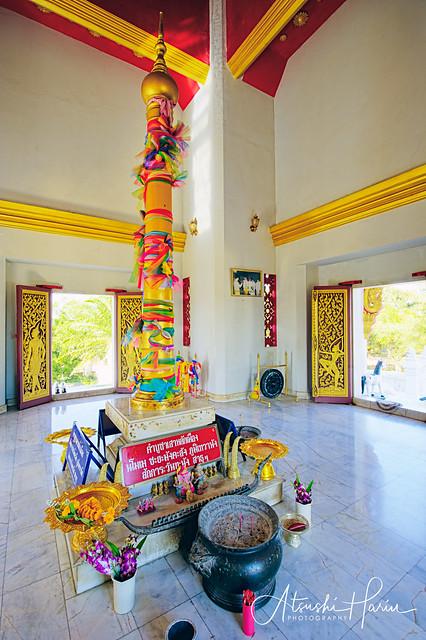
Amphoe Muak Lek
Overview
Overview of Amphoe Muak Lek
Amphoe Muak Lek, located in Saraburi Province, Thailand, is a charming district that often flies under the radar for many travelers. Nestled amidst lush greenery and rolling hills, this area offers a serene atmosphere that contrasts with the bustling cities of Thailand. Known for its agricultural landscape, Muak Lek is primarily an agricultural hub, famous for its fresh produce, particularly strawberries and various fruits, making it an appealing destination for food enthusiasts and nature lovers alike.
The cultural fabric of Muak Lek is woven with the traditions and lifestyles of the local people, predominantly Thai Buddhists. The district is dotted with beautiful temples, such as Wat Muak Lek, where visitors can immerse themselves in the serene ambiance and witness daily rituals and practices. The architecture of these temples often features intricate designs and vibrant colors, offering a glimpse into the artistic heritage of the region. Don't miss the chance to engage with the locals, who are known for their warm hospitality and friendliness, providing a truly authentic Thai experience.
Historical Significance
Historically, Muak Lek played a significant role as a transit point for trade routes in the past, contributing to the development of the central region of Thailand. The area has maintained its agricultural roots, which were pivotal in sustaining local communities. Today, Muak Lek serves as a peaceful retreat for those looking to escape the fast-paced life of larger cities like Bangkok. The historical significance is also echoed in the surrounding landscapes, where remnants of traditional ways of life can still be seen, offering insights into the region’s agricultural practices and rural heritage.
One of the unique aspects of Muak Lek is its proximity to the renowned Khao Yai National Park. This UNESCO World Heritage Site is just a short drive away, allowing travelers to explore lush jungles, stunning waterfalls, and diverse wildlife, including elephants and various bird species. The natural beauty surrounding Muak Lek is a perfect backdrop for outdoor activities such as hiking, cycling, and bird watching, making it a prime location for eco-tourism.
Local Characteristics and Atmosphere
The atmosphere in Muak Lek is peaceful and laid-back, characterized by the sounds of nature and the scent of fresh produce from local markets. The vibrant weekly markets offer visitors a chance to taste local delicacies, such as sticky rice, grilled meats, and fresh fruits, showcasing the culinary delights of the region. The markets are also a great place to purchase handmade crafts and souvenirs, providing a perfect opportunity to support local artisans while taking a piece of Muak Lek home.
Moreover, Muak Lek is known for its stunning landscapes, with rolling hills and terraced farms creating picturesque views. The district's cooler climate, particularly during the winter months, makes it an ideal location for growing strawberries and other seasonal fruits. Many visitors enjoy picking their own strawberries at local farms, making for a fun family-friendly activity that connects them with nature and local agriculture.
Festivals and Events
Throughout the year, Muak Lek hosts various festivals that reflect its rich cultural heritage. The Strawberry Festival, held during the peak strawberry season, is a highlight for both locals and tourists alike, featuring competitions, traditional performances, and, of course, delicious strawberry treats. Attending such festivals provides an excellent opportunity to engage with the community and experience the vibrant local culture firsthand.
As you explore Amphoe Muak Lek, you'll find that it is a treasure trove of experiences waiting to be discovered. The combination of natural beauty, rich culture, and historical significance makes this district a unique and inviting destination for travelers seeking to delve deeper into the heart of Thailand.
Other towns or cities you may like in Thailand
Explore other cities that share similar charm and attractions.





